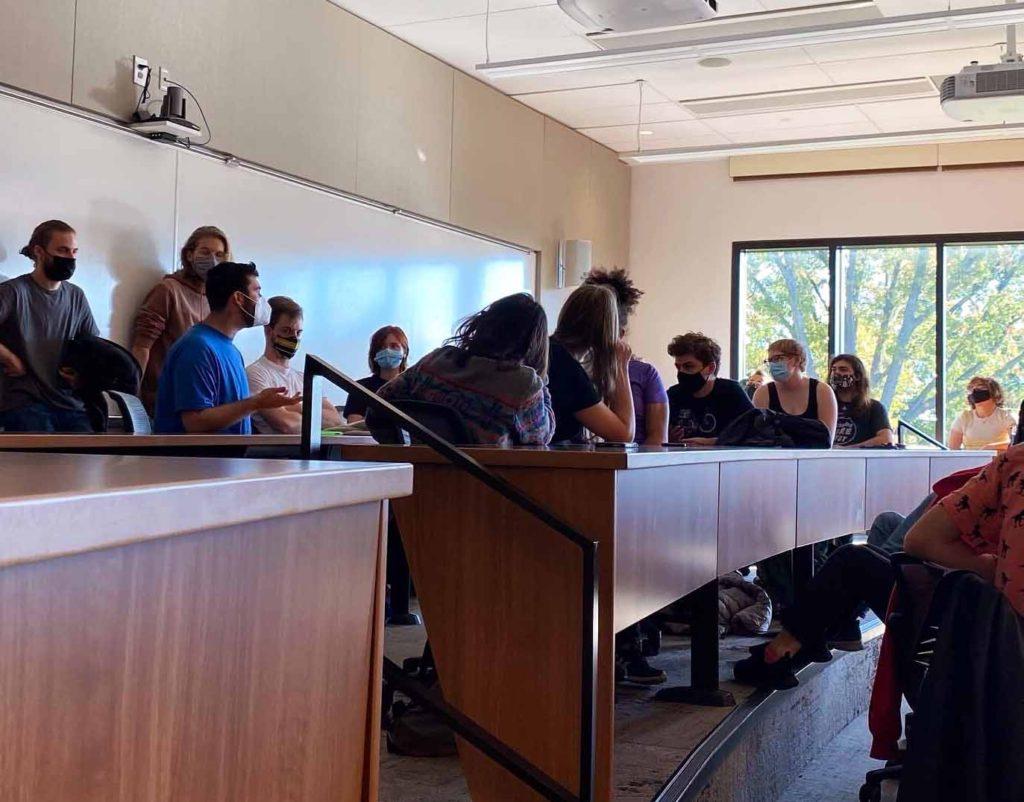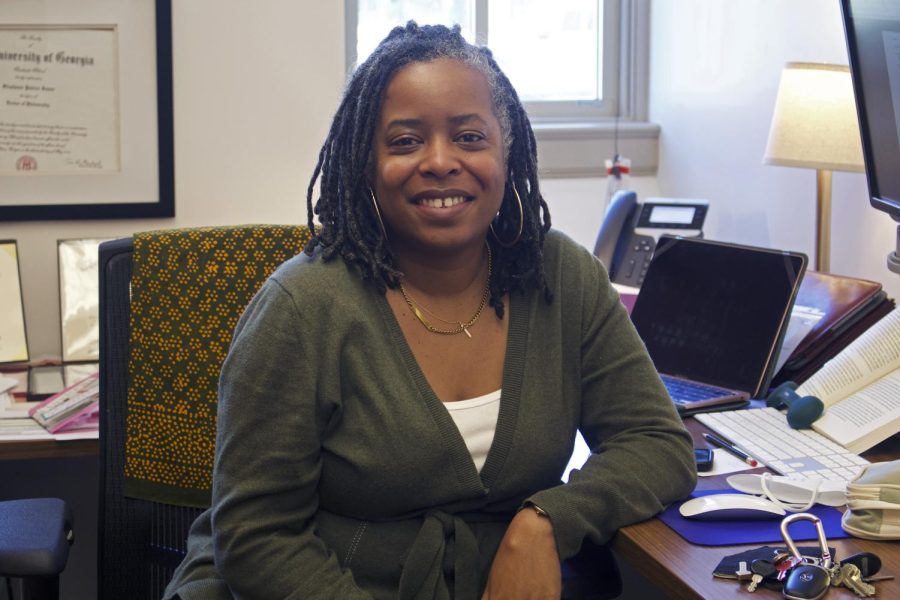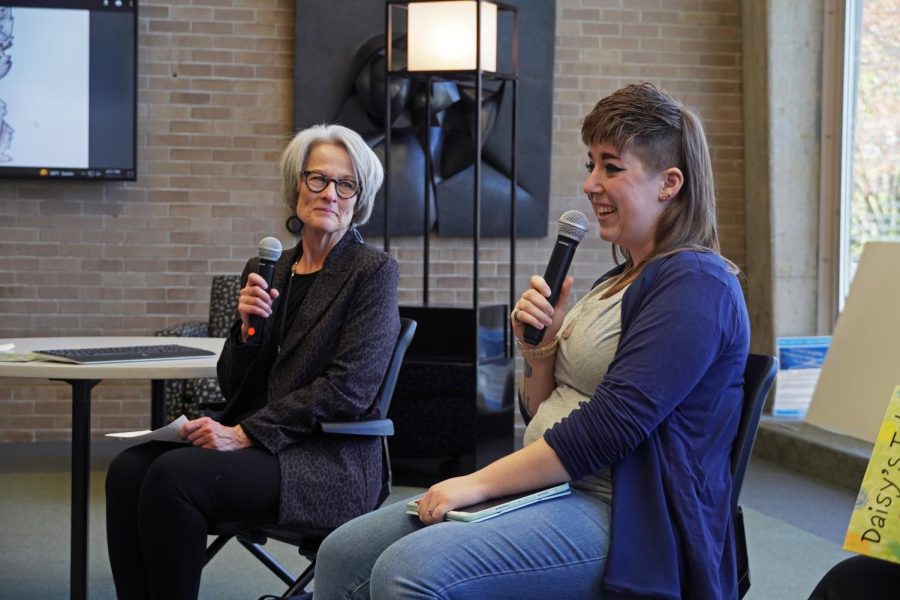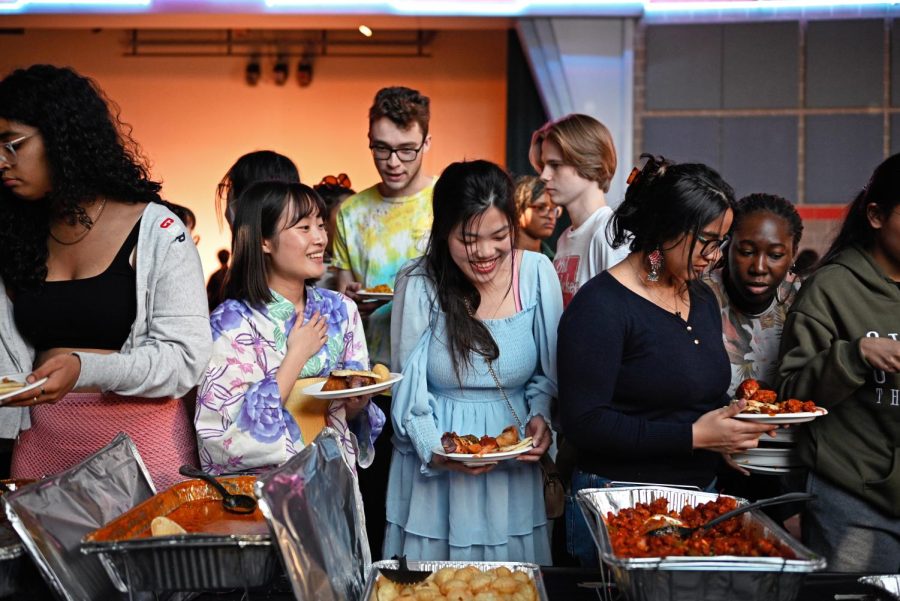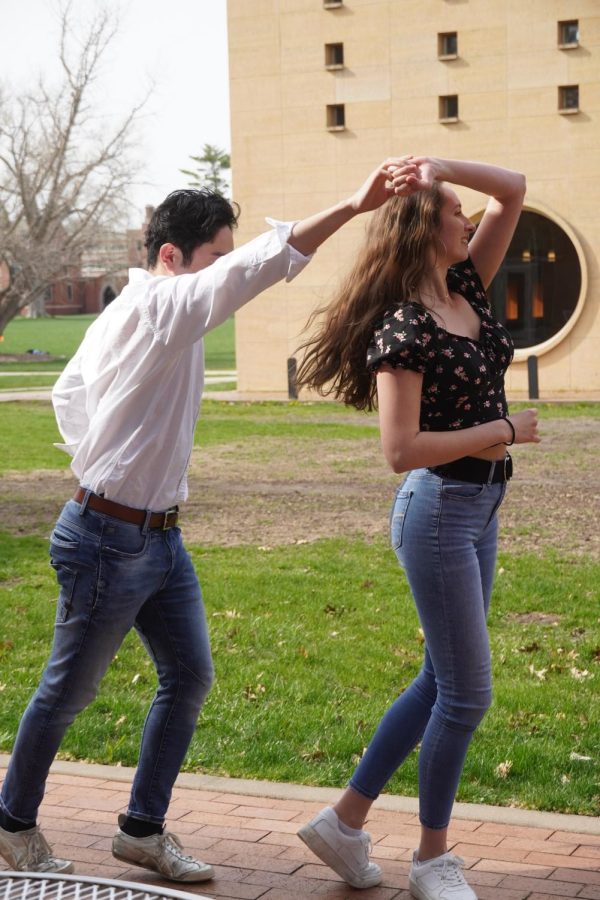The Union of Grinnell Student Dining Workers (UGSDW) publicly announced its campaign for a $15 an hour minimum wage for Dining Hall student workers in a press release on Monday, Nov. 8.
The union decided to pursue this wage increase at a meeting on the preceding Saturday which was attended by over 40 student workers, according to the press release. The campaign is the result of student worker concerns with “record-low employment in the Dining Hall,” as well as issues with insufficient training and students being expected to do the job of multiple employees.
UGSDW President Sofia Carr `22 said that the wage increase demand arose because of these issues.
“The $15 wage came up as something to begin to alleviate the pressure, so it addresses the issue of understaffing on two fronts, the first being that a lot of people are looking at Dining, including people who currently work there, and saying this work just isn’t worth it,” Carr said. “The current wage we have is not enough to justify regular working in [the] Dining Hall, and especially not working in [the] Dining Hall with understaffing.”
Only 66% of student worker shifts available are being filled, Mary Greiner, assistant vice president of human resources for the College, wrote in an email to the S&B. This year, there are 623 shifts available per week (meaning that there are approximately 208 unfilled spots). In 2018, there were 842 shifts available per week and 86.7% of them were filled.
Nora Kohnhorst `25 works in the dining hall and says that she has experienced the effects of understaffing in her job, especially.
“My supervisor was generally around at the beginning of the year, but as it’s gotten later in the year, and I think more people have quit, it’s become a lot more hectic and like harder to find someone to talk to if I do have questions because I’m still definitely learning the ropes,” Kohnhorst said.
Due to understaffing, students are taking on the responsibilities of more than one job during their shift. Schedules seen by the S&B show that some shifts are missing three out of the four students needed for that shift. As a result, student workers say are doing multiple jobs at the same time.
Kohnhorst described how understaffing has led to her having to do jobs usually reserved for the full-time kitchen staff, on top of her normal duties when she works at the Vegan/Halal/Gluten-Free station.
“I’ve actually had to take the food out of the large containers and decant it into the serving containers and then do that on top of refilling it, which just takes a lot more time,” said Kohnhorst.
Students have noticed longer lines. Greiner also attributed this to the over-enrollment and the higher number of people on meal plans. Additionally, some stations must close periodically due to understaffing. Stir Fry has not been open the whole year.
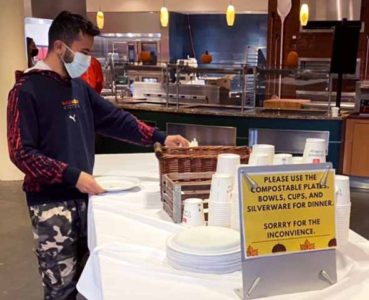
And although understaffing has had a noticeable impact on the line lengths and the amount of food available in the dining hall, Carr emphasized that the primary focus of the UGSDW was to support the workers who are being the most affected.
“The focus of what we’re doing right now is the impact that it’s having on people who work in dining,” Carr said. “In any workplace, working with the issue of understaffing as a backdrop is exponentially harder than it would be just normally working that job.”
Several other student workers voiced concerns about how they were trained, according to the UGSDW press release, which stated that student workers assigned the Vegan/Halal/Gluten-Free combined station had not been given adequate cross-contamination training.
Asked about this issue by union members at the Nov. 9 “Meet the Director” event, Jeannette Moser, director of dining services, said, “I can help with the training issues … I have jurisdiction with that.” She also said “we’re trying to hire, and we have signs up. We will do our best.”
Greiner said Human Resources and Dining are working together to resolve the issue. Some efforts include adding premium shifts for evening and weekend work; hiring interim workers; hiring a staffing company to help hire new students. She also said they are “benchmarking wage data to ensure we are competitive.”
The UGSDW says that a raise to $15/hour for Dining Hall workers would improve the understaffing concerns by both keeping current employees and attracting new workers because of the better wage.
“I’m thinking about quitting D-Hall,” Kohnhorst said. “And if it was $15 an hour I would not quit or … look for a better working situation. And I’ve heard that sentiment so many times from other student workers.”
According to a UGSDW survey of 80 students, the wage Marketplace would need to offer is $15 an hour; over half of the students interviewed said they would pick up a shift if offered that.
Carr went on to say that the demand for $15 is both financially feasible and in the best interest of student workers and the College. Carr added that UGSDW has encountered difficulties within contract negotiation when their demands for this wage were blocked by the College’s bargaining team.
“In other bargaining sessions, they [the College’s bargaining team and lawyer] have told us to our faces … that they could literally pay every single student worker $100, but that they won’t because it’s not financially prudent,” Carr said. “We’re not asking for $100; we’re asking for $15. That should be feasible. As for the issue of financial prudence, how prudent is it to lose all your workers?”
Keir Hichens ’22, a UGSDW executive board member-at-large, said to Moser at the Nov. 9 meeting, “Students aren’t choosing not to work; the college isn’t paying what student labor is worth.”


















































